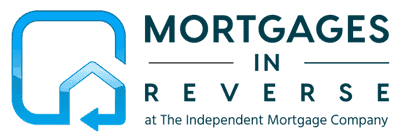Have you ever wondered if reverse mortgages could truly be a solution to managing retirement expenses, especially in Vancouver's challenging housing market? You're not alone in considering this financial tool.
As a homeowner, you've likely worked hard to build equity in your property. Imagine if you could tap into that resource in your retirement years, all while maintaining ownership of your home. But how does it work? And is it really as beneficial as it seems? Let's explore the ins and outs of a reverse mortgage to find out.
Key Takeaways
- Reverse mortgages in Vancouver offer a reliable income stream leveraging high property values.
- Eligible homeowners can convert home equity into cash to manage retirement expenses.
- No monthly payments with reverse mortgages help ease financial stress during retirement.
- Misconceptions clarified: reverse mortgages can be part of strategic retirement planning, not desperation.
Understanding Reverse Mortgages
To fully grasp the potential of reverse mortgages for handling retirement expenses, it's crucial that you understand what they're and how they function. A reverse mortgage is a loan available to homeowners aged 62 and older, allowing you to convert part of the equity in your home into cash. Unlike a traditional mortgage, where you make monthly payments to a lender, a reverse mortgage pays you.
In terms of mortgage repayment, you're not required to pay back the loan until the home is sold or otherwise vacated. As long as you live in the home, you're not required to make any mortgage payments. However, you'll still be responsible for property taxes, insurance and home maintenance.
Before jumping into a reverse mortgage, you should consider reverse mortgage alternatives. These can include downsizing to a smaller, less expensive home, renting out a portion of your current home, or looking into home equity loans. Each of these alternatives has its own pros and cons, so it's essential to do thorough research and possibly seek advice from a financial advisor before making a decision.
Benefits of Reverse Mortgages
While considering these alternatives, it's also crucial to recognize the potential benefits a reverse mortgage can offer for your retirement expenses. Despite the Reverse Mortgage Risks that may exist, the advantages often outweigh the drawbacks, especially when effective Retirement Planning is in place.
- Enhanced Cash Flow: A reverse mortgage can provide a steady stream of income during your retirement years, ensuring that you're not left cash-strapped.
- Home Ownership: Unlike other mortgage options, you retain ownership of your home while you live there, even while receiving payments.
- No Regular Payments: There's no obligation to make monthly payments toward the loan balance. This can certainly ease your financial burden.
- Flexible Payout Options: You can choose how you want to receive your funds – as a lump sum, monthly payments, or a line of credit, providing you flexibility to meet your needs.
The key is to understand both the Reverse Mortgage Risks and benefits, and make an informed decision that aligns with your Retirement Planning strategy. Remember, a reverse mortgage isn't for everyone, but it can be a powerful tool for the right individual.
Eligibility Criteria for Reverse Mortgages
Navigating the eligibility criteria for a reverse mortgage is crucial in determining if this financial strategy fits into your retirement plans. To qualify, you must be at least 55 years old and own your home outright or have a low mortgage balance. Your home must also be your primary residence and be in good condition.
Loan limits are another consideration. They're usually determined by the age of the youngest borrower, the current interest rate, and the appraised home value. The maximum claim amount is also considered. This is the lesser of the home's appraised value or the maximum limit set by the Federal Housing Administration (FHA).
Interest rates, which can be either fixed or adjustable, also play a significant role. Fixed rates require you to take a lump sum payment, while adjustable rates offer more flexibility in payment options.
You must also demonstrate the financial capacity to maintain your home and keep up with property taxes and insurance. Lastly, you'll need to meet with a reverse mortgage counselor to ensure you understand the obligations and implications of a reverse mortgage. It's essential to take these factors into account when considering this route for managing your retirement expenses.
Reverse Mortgages in the Vancouver Market
Having understood the eligibility criteria for reverse mortgages, it's important to examine how this financial strategy plays out specifically in the Vancouver market. Given Vancouver's housing trends, reverse mortgages may offer a viable solution for many retirees.
- Increasing Property Values: Vancouver's housing market has seen consistent growth. This means you might be sitting on a significant amount of home equity that can be leveraged through a reverse mortgage.
- Legal Aspects: In Vancouver, reverse mortgages are regulated by federal law, ensuring that you're protected from potential predatory lending practices.
- Loan-to-Value Ratio: In Vancouver, the loan-to-value ratio for reverse mortgages is typically around 55%, depending on your age, property type, and location. This means you may not be able to borrow the full value of your home.
- Competitive Interest Rates: Vancouver's reverse mortgage market offers competitive interest rates, which can make this option more appealing compared to other loans.
In essence, reverse mortgages in the Vancouver market can offer a reliable income stream for retirees, given the city's robust property market. However, it's essential to carefully consider all aspects before proceeding.
Common Misconceptions About Reverse Mortgages
Despite the potential benefits of reverse mortgages, there are several misconceptions that often cloud people's understanding of this financial strategy. A reality check is needed to clear these misunderstandings.
A prevalent misconception is that the bank will own your home. In reality, the title remains with you, and the bank merely has a lien on the property, similar to a traditional mortgage. You're free to sell or leave your home to your heirs, but the loan must be repaid.
Another common fallacy is that you'll outlive your reverse mortgage. Reverse mortgages are designed to last for your lifetime. As long as you live in the home, you won't run out of money or be forced to move.
Lastly, many believe that reverse mortgages are only for desperate situations. Misconception debunking reveals that many financially savvy retirees use this tool as part of a comprehensive financial plan. It can provide additional cash flow, enabling you to delay drawing on your retirement funds.
Understanding these facts can help remove the stigma around reverse mortgages, allowing you to make informed decisions about your retirement planning.
Frequently Asked Questions
What Are the Tax Implications of a Reverse Mortgage in Vancouver?
In Vancouver, the tax implications of a reverse mortgage are minimal. You won't face any direct tax charges on the loan proceeds. However, the Mortgage Regulations insist that you still pay property taxes.
Don't forget, the interest accumulated on a reverse mortgage isn't tax-deductible until the loan is fully paid off. This differs from a traditional mortgage where interest can be deducted annually.
How Does a Reverse Mortgage Affect Estate Planning?
Ironically, while you're securing your golden years with a reverse mortgage, you're also altering your estate planning. The inheritance implications are clear: your heirs will inherit less.
Despite misconceptions, reverse mortgages don't rob your children of their inheritance entirely. Instead, it reduces the estate's value, as the mortgage must be repaid after your demise.
Therefore, it's essential to consider and discuss reverse mortgage implications with your heirs as part of your estate planning.
Can a Reverse Mortgage Be Utilized to Fund Long-Term Care in Case of Health Concerns?
Absolutely, you can use a reverse mortgage for healthcare financing. It's a practical mortgage consideration when dealing with long-term care. If you're facing health concerns, the equity in your home can be converted into funds to cover medical costs.
It's a viable option that provides financial flexibility during retirement. However, it's crucial to weigh all the pros and cons before making this significant decision.
What Are the Alternatives to a Reverse Mortgage in Vancouver?
Don't put all your eggs in one basket; explore other equity release options in Vancouver. Consider downsizing benefits as an alternative to reverse mortgages.
By selling your current property and moving into a smaller, more affordable home, you'll reduce your living costs and free up some capital.
Alternatively, home reversion plans or lifetime mortgages could be suitable, depending on your circumstances. It's crucial to weigh all the pros and cons before making a decision.
Can a Reverse Mortgage Be Refinanced or Adjusted Over Time?
Yes, you can refinance or adjust a reverse mortgage over time. It's important to keep an eye on interest rates. If they drop significantly, refinancing might save you money.
Additionally, depending on your lender, there may be flexible repayment options. However, refinancing isn't always beneficial, it's crucial to consider closing costs, potential penalties, and your long-term financial goals.
It's best to discuss with a financial advisor before making such a decision.

